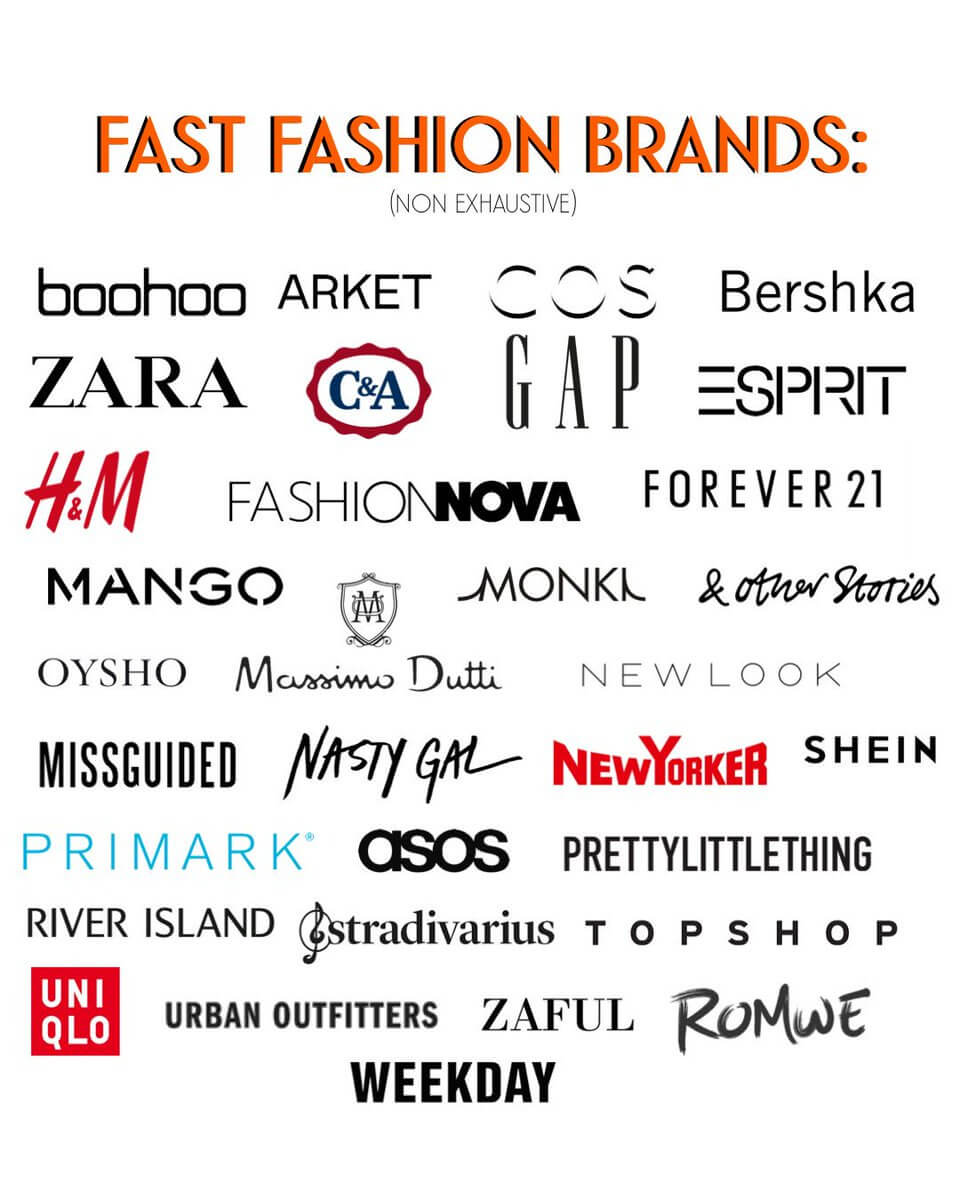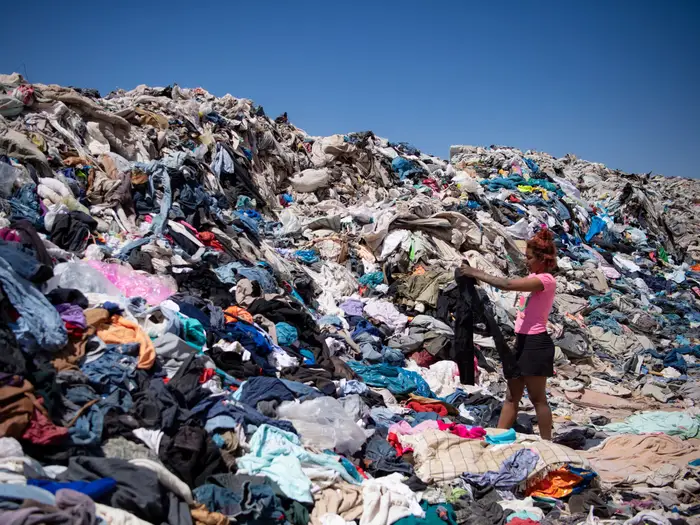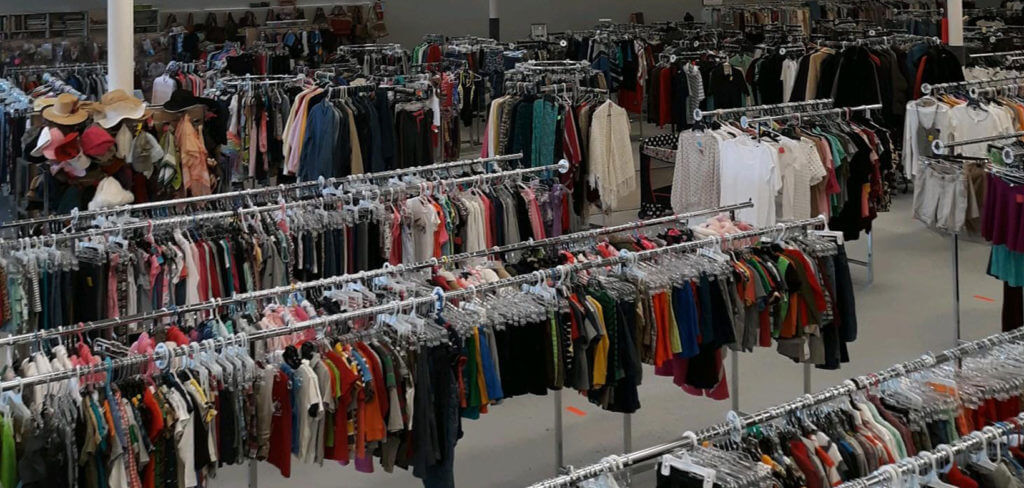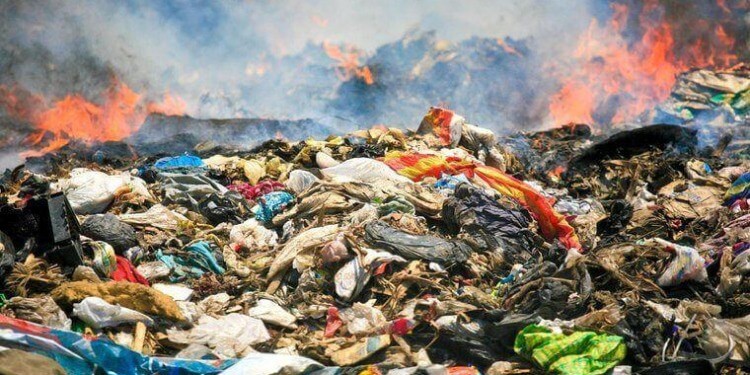As fast fashion giants like Shien, PrettyLittleThing, ZARA, and H&M grow exponentially every year at little cost to consumers, it is evident that the environment and local communities are the ones paying the ultimate price. What are fast fashion’s detrimental effects on our planet? And how can the shopaholics of the world save us?
At first glance, online retailers like Shien, PrettyLittleThing, and Fashion Nova seem like the perfect place to shop. At any given time, these stores offer thousands of styles, and add more each day, that are super trendy and unbelievably inexpensive.
Fast Fashion’s products vary from casual loungewear to club-ready dresses, comfy sneakers to boots and stilettos, shiny body jewelry, to even swimsuits. Shipping time is often quick, eliminating the stress of wondering if your items will arrive in time for your upcoming concert or vacation.

If these online retailers are a convenient, one-stop shop to cheaply revamp your entire wardrobe, then what’s so bad about them?
Well, the short answer is: A lot.
Environmental Devastation
The fast fashion industry is highly unregulated so the exact statistics of its toxic contributions to our environment are unknown. It is estimated, however, that the industry is responsible for 8-10% of greenhouse gas emissions and the second greatest polluter in the world, just short of oil.
About 200 tons of water are polluted for every 1 ton of fabric created and some 100 million tons of excess textiles end up in landfills each year.

Extensive Extortion
As global demand continues to soar, the companies’ factories plan to expand and keep up with consumers’ needs. This is at the cost of their underpaid, overworked, and often uncontracted employees. Additionally, the people living in nearby communities are subjected to the resulting pollutants of the fast-fashion factories’ production.
If this cycle continues, poisonous gasses will continue to be emitted into the air of surrounding cities and toxic run-off will further contaminate the drinking water. When consumed, these chemicals can have serious, if not fatal effects on humans.
People in Nagda, India, the birthplace of online retailer PrettyLittleThing, know all too well of these physical consequences. Every day, more men, women, and children are experiencing symptoms of muscle degeneration, vascular problems, eye diseases, loss of speech, and infertility. These conditions are all linked to pollution.
Reprehensible Revisions
As public education and media coverage of these harmful production practices expands, fast fashion companies have worked to “rebrand” their image but fail to make actual positive changes.
These retailers care most of their profit and therefore, are willing to deceive consumers by upholding “green” or “organic” facades to better conceal their disastrous and destructive reputations. As a result, companies began using synthetic fibers, which in the public’s eye, are better for the environment. However, this is far from the truth.
Viscose is the latest development in synthetic textiles. The fabric is made similarly to rayon; wood pulp is harvested from regenerative trees, like eucalyptus and pine, and dissolved in chemical solutions. This creates a viscous substance that is spun into fibers and then made into thread. This process creates immense amounts of carbon disulfide, a poison that if inhaled or exposed to humans, can cause a plethora of issues involving respiratory dysfunction, nausea and vomiting, dizziness and headaches, delirium, and muscular convulsions.

While PrettyLittleThing, parented by the Boohoo Group, is famously known for their use of viscose to greenwash their unethical practices. Other fast fashion retailers like H&M and Forever 21 have similarly misguided consumers by developing “eco-conscious” collections that are allegedly made from organic or recycled materials.
At surface level, these initiatives may seem progressive by counteracting previous disreputable operations but they are still engaged in greenwashing: Several investigations have revealed the “sustainable” materials composing these collections, like certified organic cotton or recycled polyester, still contain synthetic fibers, such as viscose, that result in just as much environmental damage as their main clothing lines.
Veiled Ventures
Other fast-fashion retailers, like Shien, are far more unwilling to even attempt to adjust their practices and appease public adversity. Unsurprisingly, they keep operations secretive and rarely allow reporters to enter their headquarters in Guangzhou, China, Singapore, or Los Angeles. Consequentially, accusations have arisen of child labor, unpaid employees, and dangerous factory conditions.
As consumers, environmentalists, and empathetic humans, we cannot support these businesses as they obliterate the earth’s ecosystems, abuse their workers, and swindle their shoppers.
Curb Your Consumerism
The most essential standard to maintain for yourself is to no longer purchase from fast fashion retailers. If your hesitation to commit to this pledge stems from financial instability, consider the various other inexpensive, or even free options to purchasing clothing.

Ideally, consumers should stray away from purchasing new clothes and instead, shop from the plethora that has already been produced. These like-new pieces are available in thrift stores, sold by resellers on platforms like depop or Vinted, or potentially found in your sister’s closet (Just ask first!)
Less than 1% of all clothing is recyclable. Fast fashion products can typically be worn once before tearing or stretching to a point of unsuitability.
Shopping for truly sustainable brands is expensive. So, purchasing second, third, or even fourth-hand clothing is certain to minimize your consumer demand, while maximizing your style and maintaining your budget.
The Last Stitch Effort
Methodically, look through your closet.
Which pieces make you feel good? Which items do you love and find yourself wearing often? Are there any clothes you do not care for? Could donate anything? Are there items you can resell at thrift stores or online? Could you compile unwanted garments and have a swap with your friends?
As grueling as it is to abstain from the newest trends, think beyond fast fashion’s box and explore unconventional manners of adding to your wardrobe. Or even better, maybe, just maybe, realize you probably have enough clothing already.
Editor’s Note: The opinions expressed here by Impakter.com columnists are their own, not those of Impakter.com. — In the Featured Photo: a burning mound of excess textiles in a landfill. Featured Photo Credit: CODOGIRL, The Impact of Fast Fashion, 760 × 411.










